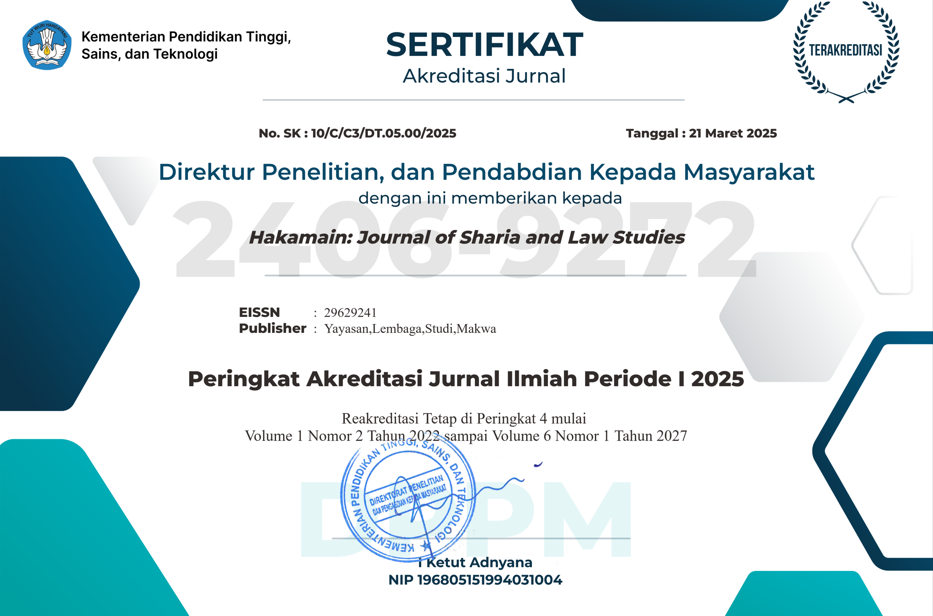Tinjauan Siyasah Dusturiyyah Terhadap Pelaksanaan Peraturan Nagari Nomor 05 Tahun 2018 Tentang Pengelolaan Sampah Rumah Tangga Di Nagari Situjuah Kabupaten Lima Puluh Kota
DOI:
https://doi.org/10.57255/hakamain.v1i2.236Keywords:
Siyasa Dusturiyah, Household WasteAbstract
This research is motivated by the fact that many people do not comply with Nagari Regulation 05 of 2018 concerning Household Waste Management so that waste management in Nagari Situjuah Banda Dalam is disorganized and does not work as expected. This study aims to find out how to implement Nagari Regulation Number 05 of 2018 concerning Household Waste Management in Nagari Situjuah. The research I used was field research using a qualitative approach, namely research whose data was obtained through the field, studying, recording, analyzing and observing and interviewing as primary data collected by the Nagari Situjuah government. After doing research it can be concluded that; First, the lack of the role of law enforcers, the lack of facilities and infrastructure and the lack of public knowledge about the existence of this regulation so that the rules do not run smoothly and are ineffective. Second, the Siyasah Dusturiyah Fiqh review of household waste management is that the Siyasah Dusturiyah Fiqh discusses the concept of a rule of law and the reciprocal relationship between the government and citizens that must be protected in order to achieve the benefits of society. In this case, the Nagari government issued a Nagari regulation related to household waste management so that people would comply more with existing regulations so that no harm would occur from the actions of local residents.
Downloads
Published
How to Cite
Issue
Section
Citation Check
License
Copyright (c) 2023 Helmi Yusnita

This work is licensed under a Creative Commons Attribution-ShareAlike 4.0 International License.






